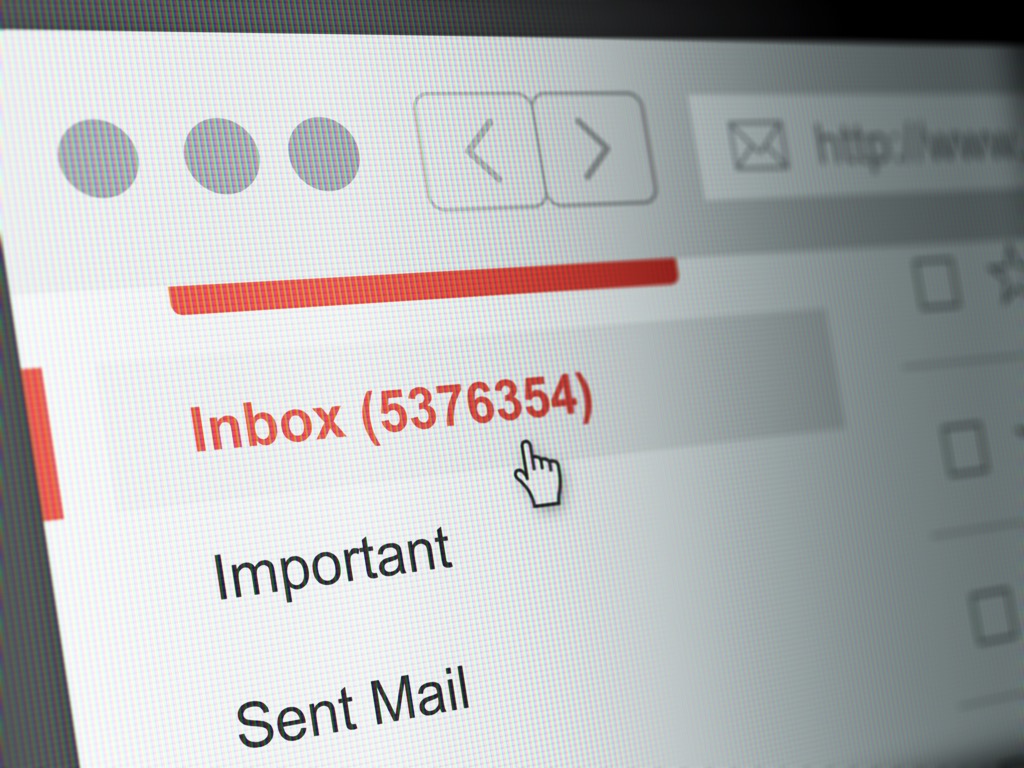40 Workplace Habits You Need to Drop By 40

Like even the most well-oiled of machines, every worker needs an occasional tune-up—even more so for workers approaching 40. After two decades in the workforce, give or take, everyday habits—both good and bad—become so rote they’re practically second-nature. And if you think you’re the rare worker exception, think again. (In fact, if we had to guess, your second-nature ticks were by now first-nature.)
That’s why we’ve rounded up a host of experts whose raison d’etre is eradicating such hard-to-break habits at large. From sleep patterns to politics—even office gossip—our panel of experts has identified countless work-affiliated behaviors every office worker should ditch stat, whether the goal is the corner office or simply the next deadline. So soak up their science and make your 40s your most effective, productive, and altogether enjoyable decade in the workforce yet. And for more changes to make in your best years, check out these 40 Life Changes You Should Make At 40.
1
Multitasking

“Today’s modern workplace is a single tasker’s nightmare, yet data shows that single tasking is the key to higher productivity, lower stress, and more happiness,” says Carolyn Adams, spokesperson for RescueTime, a worker productivity software. If it feels like you have a million things on your plate, try making a list and knocking them out one by one instead of all at once.
“The multitasking ‘switch’ doesn’t work as well in older brains, so flip your approach to a single tasking strategy to give you more game,” suggests Adams. Doing one thing well will always hold more value than two things done poorly, no matter what your age. And to make sure you can get everything done on deadline, check out these 15 Ways to Double Your Productivity in Half the Time.
2
Taking Too Many Breaks

“When you are in your 20s or 30s, you are high on energy and hormones and take a lot of hanging out time, smoking breaks, and water cooler talk time,” says Ketan Kapoor, CEO and co-founder of talent assessment software Mettl. By 40, however, all your time at the office should be productive, not recreational. “At this age, there’s a decline in your energy levels and you won’t be able to juggle [tasks] as efficiently,” he explains. This doesn’t mean an end to all socializing, but simply being more mindful about how your office time is spent.
3
Complaining

By the time you’re approaching 40, “You are too old to complain about your organizational shortcomings and make excuses about non-completion of your work,” says Kapoor. “You are now in authority and team members look up to you for your motivation, drive, and passion.” Even if you feel poorly about the company, it’s crucial to put on a positive face for the sake of those around you—not to mention yourself. “Spreading negativity not only impedes your own productivity levels,” he explains, “but others also who are influenced by such negativity.” And for more behaviors that drag down co-workers’ morale, check out these 30 Things You Should Never Do At Work.
4
Checking Your Phone and Personal Emails Often

“Every time you move your attention to have a quick glance at emails and phone, it takes another two to three minutes to get full concentration and focus on your work,” explains Kapoor. Now that there’s more work than ever on your plate, it’s time to be smart about every minute spent in the office. Instead of randomly looking at your smartphone when bored, “schedule different slots in a day for unproductive work, like checking your phone or checking email.”
5
Not Investing In Your Health

“If you don’t start devoting time to your health, chances are your professional life will be affected too,” says Kapoor. With increased responsibilities, the stress from work is likely to bog you down unless you keep your body strong and resistant. “Join a membership of any kind, like yoga, meditation, gym, or dance, and adhere to your exercise regime religiously,” he suggests. It won’t just be your body thanking you, but your boss, too. And to stay healthy in all realms of life, check out these 40 Ways to Have a Healthy Sex Life After 40.
6
Working Excessive Hours

“Working excessive hours is hazardous for your health,” says Kyle Elliott, MPA, the career coach behind CaffeinatedKyle. While this holds true for all age groups, it’s especially true for those over 40, he says. “Be mindful of how many hours you put in each week,” he explains—and don’t go over a threshold that you and your doctor have determined is best for your long-term health.
7
Making Work Your Sole Source Of Happiness

“Look for sources of happiness outside of work,” says Elliott. When kids move out of the house, it can be tempting to “get consumed by work to compensate for the loneliness,” he explains. While it may fill the void for a bit, however, it’s ultimately an unsatisfying solution and one that only increases your chances of long-term burnout. Instead, focus on what really makes you fulfilled, not just what’s at hand and easy to lose yourself in. And to maintain a healthy balance between your professional and personal life without losing sight of either, check out The 50 Top Secrets of a Perfect Work-Life Balance.
8
Not Having A Contingency Plan

“Not having a contingency plan ready if you get laid off or fired can be disastrous,” says Elliott. After 40, he explains, it takes much longer to find a new job, due in no small part to ageism across industries. To prepare for a potential career change, spend downtime updating your résumé and LinkedIn, writing down accomplishments, and checking out the job market. While you probably won’t be fired (knock on wood) it’s great to know that even if you do, your day-to-day comforts won’t suffer as a result.
9
Keeping a Cluttered Inbox

“One of the greatest stressors and hinderers in the workplace is having a messy inbox,” says Caleb Backe, a health and wellness expert at Maple Holistics. Now that you’re older, it’s time to pare down those work-related burdens that are unnecessary to better focus on the ones that are. “Take the time to clean up the clutter so that you can work and respond to the best of your ability,” he urges. You’ll be shocked at just how big a difference this small change can make. And for more ways to take the insanity out of your email, check out these 27 Ways to Be a Stress-Free Email User.
10
Not Using Your Vacation Days

As a younger employee, “there’s an unspoken urgency to prove yourself,” says Backe. This means not only working long hours, but foregoing the use of accumulated vacation days. Once you hit 40, however, vacation days become crucial in maintaining a work-life balance—so start using them up. It may even increase your value: “to show your employer that you’re worth keeping around you need to give them the chance to miss you a little,” explains Backe.
11
Going For After-Work Drinks

“Once you’re past 40, one workplace habit well worth dropping is the after work drinks,” says Ben Taylor, founder of HomeWorkingClub. The fact is, your body can’t recover from them like it once did,bouncing back to work the next day like nothing happened. “If you want to prioritize your health and future career, it may be best to leave the youngsters to it,” he explains. Not to mention, it’ll save you a pretty penny. And if you do decide to go out just this one time, check out the 7 Drink Orders Guaranteed to Impress Your Boss.
12
Looking At The Clock

“To keep upward momentum…you have to realize that your job doesn’t start and end according to the clock,” says Sylvia LeRahl, founder of strategic consulting site Membership Fix. Instead of constantly looking up to see how long until lunch, it’s important to realize that what determines the length of your work day isn’t time, but the amount you’ve accomplished. “All that matters is…deliver[ing] results,” she explains.
13
Gossiping

“Many leadership experts agree that gossiping is a key indicator of an unhealthy organization,” says Val Grubb, career coach at TONE Networks. “Employees are too busy stabbing one another in the back to actually get the job done and/or function as a team,” she explains. So focus on your work, not others. And remember—if you don’t have anything nice to say, don’t say it.
14
Being One Of The Guys

When you’re starting out in an industry, it’s best to blend in and show co-workers that you’re one of them. Once you start becoming a more senior employee, however, “responsibility at work requires that you stop ‘being one of the guys’ and start being the leader of the team,” says Jeffrey Naftal, Director of Human Resources at Prince George’s County Memorial Library System. This means taking your work even more seriously than usual, and behaving accordingly. “Coming in late…or slouching through the day because of that party won’t work when you are the one setting the example,” he explains. At 40, you know what to do, and how to do it well—so start acting like it.
15
Eating Unhealthy Food Because It’s Convenient

Sure, it might be easier to pick up a McRib during your lunch break—or maybe even just a honeybun from the vending machine—but the food choices you make during the workday follow you home. According to one study published by The Nutrition Study, individuals who received healthier catered meals at work continued “to make food choices closer to nutritional recommendations” throughout the rest of the day. While you may not be able to ask your company for healthy, catered meals, you can get pretty close yourself. Knowing the stakes, it’s more than worth the extra five to ten minutes it may take to prepare yourself something nutritious and tasty. And to avoid making another food faux pas, check out these 50 Healthy Eating “Secrets” That Don’t Work.
16
Focusing On Past Failures or Shortcomings

Coming into your forties, your career has likely seen its fair share of ups and downs. While there will always be things you regret, there’s no point in obsessing over them. Instead, focus on the things you’re proud of. Research published in The Journal For Quality & Participation stresses that “successful people [are] likely to focus on their successes rather than failures.” Even more than that, they have “an unflappable optimism.” While regrets and failures tend to stick in your memory due to their painful nature, it’s important to actively remind yourself of the myriad successes you’ve encountered, as well.
17
Starting Sentences With “No,” “But,” or “However”

Despite your best intentions, these words will always throw a wrench in your communications with peers. “No matter how friendly your tone or how many cute mollifying phrases you throw in…the message to the other person is, ‘You are wrong,'” writes leadership coach Marshall Goldsmith in The Journal For Quality & Participation.
While they may in fact be wrong, speaking to them as such will not help them understand why, but instead lead them “to dispute your position and fight back.” Needless to say, interoffice fighting isn’t great for productivity—your own or the company’s.
18
Thinking Your Attitude Is Irrelevant

There’s a sense in many fields that your attitude around the office doesn’t matter as long as your work holds up. While, in some exceptional cases, this may be accurate, in most cases, that just doesn’t hold true. Case in point: a study of 42 senior executives published in the Global Journal of Business Research found that a majority cited good attitude as “the most positive workplace habit affecting productivity.” Unless you truly are a star performer whose contributions outweigh any negative effects you may have on the rest of the office, it’s time to work on your ‘tude. Oscar the Grouch may be cute, but he’s not getting hired anytime soon.
19
Not Taking Breaks to Move Around

You might think workplace injuries only affect those working in labor-intensive positions, but you’d be wrong. A study by Indiana University found that “workplace injuries commonly result from long periods of inactivity during computer use.” That’s right—it’s not only strenuous movement that causes injury, but also the lack thereof. Researchers advise taking regular breaks to move your body and circulate blood, recommending the use of software programs—such as Big Stretch Reminder—to remind yourself when it’s time to for a stroll to the water cooler to talk about last night’s Game of Thrones.
20
Reassuring Bullied Co-Workers Without Dealing With The Source Of The Problem

Everyone knows an office bully. Put enough humans in a room for fifty weeks out of the year, and it’s almost impossible not to end up with at least one of these poison-tongued, insecure louts.
If you’ve seen someone within the office getting bullied and you are a kind person, you may be tempted to reassure the victim that what the bully is doing is wrong and that you have noticed their shameful behavior. However, that isn’t enough. Research published in the Academy of Management Journal found that while support can be helpful in reassuring a bullied colleague, the effect is only “modest.” Instead, get to the source of the problem and confront the bully. Your whole office—not to mention the victim—will thank you.
21
Not Getting Enough Sleep

Between work, hobbies, friends, and Netflix, it can be hard to catch enough Z’s. However, your health depends upon it—and not only in the way you would think. According to a 2005 study by the Nihon University School of Medicine, daytime sleepiness was found to have “a statistically significant relationship….[with] occupational accidents.”
And it’s not just your health that may suffer, but your company’s, as well. According to research published in the Journal of Occupational and Environmental Medicine, “Fatigue-related losses were estimated to cost $1,967/employee annually.” If that’s not worth crawling into bed a few hours early, what is? And to make sure every sleep is as good as it can be, check out these 70 Tips For Your Best Sleep Ever.
22
Not Voicing Your Frustrations

If you don’t get frustrated in the office every once a while, you either work with St. Peter at the pearly gates, or you’re a saint yourself. But while frustration is an integral part of life, it’s crucial to express that frustration to a co-worker or superior who may be feeling similarly or can at least sympathize. Besides allowing the remedial process to begin, it will stop you from engaging in unproductive and mean-spirited behavior as a result of bottled-in emotions. According to a study published in the Journal of Community & Applied Social Psychology, workplace bullying often “result[s] from inefficient coping with frustration.”
23
Ignoring Soft Skills

In today’s economy, it can seem like it’s all about the hard skills: math, tech, statistics, etc. But while those are certainly crucial for getting ahead in some fields, they shouldn’t be emphasized to the point of forgetting the softer, more interpersonal skills. According to Marcel Robles, as published in the Business and Professional Communication Quarterly, “business executives consider soft skills a very important attribute.” Employers want employees “to have strong soft skills, as well as hard skills,” he says. Though the former may get you in the door, it’s ultimately the latter that will keep you there, and allow you to move up the ladders of success.
24
Not Welcoming Newcomers

When you’re part of a tight-knit work community, it can be tempting to repel any and all intruders into your circle simply due to the fact that they are new. After all, welcoming them would mean coming up with a whole new set of inside jokes.
However, rejecting newcomers simply because they are new is not only unkind, but unprofessional and unproductive. “One of the most destructive behaviors that can be seen in any workplace…is the exclusion of a newcomer,” writes Dr. Rau-Foster in the Nephrology Nursing Journal. “Often it appears that a mistake by a new employee is intolerable (though we make mistakes everyday)” she explains. Instead of letting tribalism get the best of you, try opening up and welcoming the new employee with open arms. Isn’t that how you’d want to be treated?
25
Ignoring The Ergonomics of Your Workstation

Sitting at a computer all day—as many modern jobs entail—can wreak havoc on your skeletal system. According to a study in the International Journal of Occupational Safety and Ergonomics, “computer work is identified as a risk factor for work-related musculoskeletal disorders (WSMDs).” Fortunately, you don’t have to take the pain sitting down (no pun intended). As they go on to explain, “ergonomics training and workstation design can prevent or reduce musculoskeletal injuries…enhanc[ing] worker health and well-being.”
So take the time to design a workstation that both suits your needs and your body, whether that means using a standing desk or working on an exercise ball. What might take a few hours now can save you a lifetime of pain down the road. And if the pain’s already started, check out how to Eliminate Back Pain Forever with These 5 Easy Exercises.
26
Thinking Too Much

With decades of experience under your belt, it’s time to turn some of your hard-fought knowledge of your field’s best practices into automatic habits. “Identifying profitable work habits and following them…leads to a successful career,” writes Professor Catherine Joseph in The IUP Journal of Soft Skills. More than that, it reduces some of the strain of work by placing more of your load on auto-pilot. “One [can] work smarter without working harder,” Joseph explains.
27
Smoking On The Job

Smoking may be bad habit wherever you do it, but it’s a particular productivity killer in the workplace. According to a study in Occupational & Environmental Medicine, workers “who continued to smoke over two years had significantly greater overall workplace productivity loss compared to those who remained non-smokers.” While it’s hard to quit smoking, it might at least be time to try losing the habit while on the job.
28
Not Explaining Why You’re Angry

This one’s for the ladies. Unsurprisingly, a study published in Psychological Science found that while men who express anger in the workplace tend to get ahead, women were labelled as too emotional (e.g. “she is an angry person,” or “she is out of control”). While the onus of fixing this disparity must be on the men, there is still something women can do in the meantime to temper its effects. According to the same study, “providing an external attribution for the target person’s anger eliminated the gender bias.” In other words, when the cause of someone’s anger was explained to those around them—rather than their merely expressing the anger itself—that anger was treated identically whether it came from a man or woman. So feel free to get angry, just make sure to explain why.
29
Interrupting Co-Workers on Instant Messaging

Almost every office has some form of communal chat. Usually, this is used to communicate with co-workers about projects, getting lunch, or other workplace concerns. Sometimes, however, it can seem like a fun way to share little jokes with your office mates. According to a study in Computers in Human Behavior, however, not everyone finds those jokes so funny. Not only is the communication perceived as “much less rich” than normal conversation, but recipients often regard “its interruptive nature as unfair.” So keep your cat memes to yourself—they can wait.
30
Ignoring Your Emotions

If you think bottling up your emotions is good for your work life, think again. According to a 2005 meta-study published in Psychological Bulletin, “numerous studies show that happy individuals are successful across multiple life domains including…income, work performance, and health.”
Despite what popular mythos may tell you, ignoring your own happiness to focus on work simply isn’t a realistic option. A well-rounded life of happiness is, in fact, one of the best ways to ensure your success in the office and beyond. And to understood your own—and others’—emotions better, check out these 20 Ways to Increase Your Emotional Intelligence.
31
Being Pessimistic

Positivity is contagious. A study published in the Journal of Management found that “hope, and, to a lesser extent, optimism and resilience” contribute to positive workplace outcomes. Not only will seeing the glass a half full brighten your day, it will contribute to the bottom line. Sure it can be hard sometimes, but given its effectiveness, it might as well be in your job description.
32
Ignoring Office Politics

Office politics can be a nasty business that isn’t for everyone. However, according to a study in the Academy of Management Perspectives, “executives high in political skill are better able to cope with the chronic workplace stressors that they encounter.” By allowing them to “interpret workplace stressors in less aversive ways…[it] reduces strain,” they explain. To keep the inevitable work frustrations to a minimum, start getting to know the political ropes at your place of work—it might not be fun, but it’s at the very least a necessary evil.
33
Doubting Yourself

Thomas the Tank Engine wasn’t totally right: just because you think you can, doesn’t mean you can. He was, however, halfway there—if you think you can’t, you definitely can’t. A psychology researcher at Georgia Tech found that in older workers who failed to learn new skills, “an under-recognized factor….[was] a decline in self-confidence.” Because they doubted themselves, the workers in the study often refrained from even attempting “career-relevant learning and skill development.”
34
Having a Big Ego

Sure, your job may give you an ego boost—but that doesn’t mean bringing a big ego to work will yield positive results. According to researchers at the University of South Florida, “individuals high in narcissism reported more counterproductive work behavior…than individuals low in narcissism.” Many spheres of your life would benefit from a decreased ego, however—just add to the workplace to the list.
35
Being Envious

Everyone knows that envy is one of the seven deadly sins. But if eternal wrath can’t get you to shake the habit, consider this—it’s also unproductive. According to researchers at the University of Kentucky, “envy was directly and negatively related to group performance.” When members in a group envy one another, they explained, work was impacted “by increas[ed] social loafing and reduc[ed] group potency and cohesion.” So take stock of how good you have it and all the ways you’re blessed—and stop focusing on others. And if you’re worried you’re envious in other parts of your life, check out these 25 Silly Things That Make You a Jealous Husband.
36
Speaking Instead of Doing

To advance your career, speak less and do more. In a study published in Personnel Psychology, researchers found that a proactive personality was associated with innovation, political skill, and career initiative, but negatively associated with voice. In turn, innovation and initiative were associated with salary growth and promotion, while voice was not. While you may be too old to follow most of your grandparents’ advice, “be seen, and not heard” is one that will continue to serve you well.
37
Staying At a Job You Don’t Like

Stop staying in a position that doesn’t make you happy—not only is it ruining your mood, it’s ruining you career, too. According to research published in the Journal of Business and Psychology, “employees who are…dissatisfied engage in more counterproductive behaviors.” Thus your job —if unsatisfactory—is actively making you worse at your job.
38
Getting Back At a Rude Co-Worker

When you feel slighted by a co-worker, it’s tempting to focus on plotting your vengeance. However, research shows that instead of solving the problem, doing so actually makes things much worse. In a study published in the Academy of Management Review, researchers found that “incivility [in the workplace] can potentially spiral into increasingly intense aggressive behaviors.” This “incivility spiral,” they note, isn’t good for anyone—yourself, your co-workers, innocent bystanders, or the company as a whole. Practice forgiveness instead.
39
Letting Unproductive Co-Workers Go Unnoticed

Every office has those one or two employees that make everyone else scratch their head and wonder how they got—not to mention manage got to keep—their jobs. Instead of passively wondering, however, it’s important to actually call out those peers, whether to their face or management.
In a study in the Journal of Business and Psychology, researchers found that perceived loafing by a co-worker increases one’s own likelihood in engaging in unproductive behavior. Instead of allowing these outliers to impact your own work, then, bring attention to their lack of work ethic. Either they will be censured for their inactivity, or you will learn that what you perceived as slacking was actually not.
40
Tilting Your Head Towards The Screen

When you’re faced with a bright, shiny object—i.e. a computer screen—a natural reaction is to tilt your head towards it to get a better look. However, this is an important habit to break for the sake of your health. According to a study published in Applied Ergonomics, researchers found that in office workers who reported neck and shoulder pain, there was a strong tendency to tilt their head forwards and flex their neck. While no one is recommending a back and neck brace, a little self-control and the formation of new habits will go a long way towards relieving pain. And for more ways computer screens are wreaking havoc on your body, check out this Shocking New Study That Says Screens Are Seriously Damaging Your Vision.
To discover more amazing secrets about living your best life, click here to follow us on Instagram!